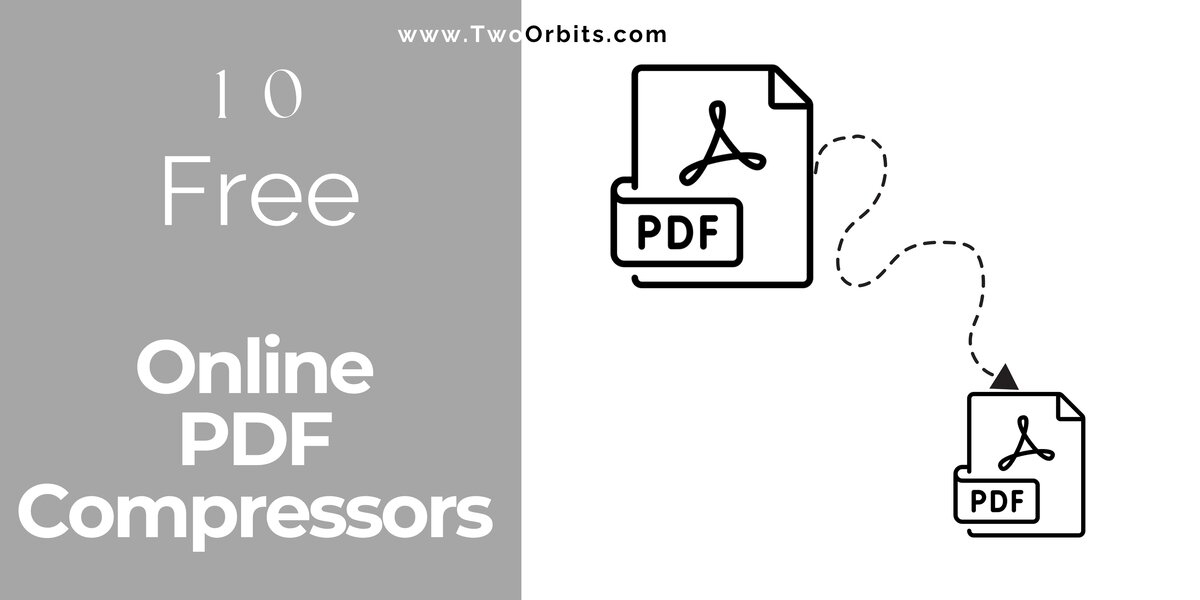Explore the Features
The best SEO Writer is here
Our SEO Content Writer enables you to create SEO-friendly content that is loved by both your readers as well as Google!

The features
Unique and Feature Rich
All the features of a word processor
Export to HTML/PDF/Print
SEO Insights and inbuilt Keyword Research Tool
The features
Extendible and Scalable
Works fine with all third-party browser extensions
Works on slower internet too
Consumes low bandwidth
The features
Share, Edit, and Collaborate
Real time collaboration
Easy document sharing
No-signup required to view shared document

Innovate with CSS
Create articles that look good
An editor that allows you to experiment with CSS styles without any limits. Research shows that the content which looks good is ranked higher.
Built-in Keyword Research
Keyword Research within the SEO Content Writer
Use the Google-based in-built keyword suggestion tool to create content that ranks.
No need to do tab-hopping to find relevant keywords. The keyword research tool provides all sorts of keywords e.g. short-tail keywords, long-tail keywords, brand keywords and LSI keywords.

TRY OUT
Meaningful SEO Insights
We understand that it's not just content creation, that matters. Get meaningful SEO insights about your content and optimise accordingly in the TwoOrbits SEO Content Writer.












More Productive
Write more in less time.
Better Content
Create better quality content with ease.
Less Boring
TwoOrbits lessens the boredom you might feel sometimes while creating content.
SEO Friendly
Craft completely SEO-friendly content that ranks.
Explore the Features
Better your content development process
A better content development process makes your website/blog prosper.
More content in less time/budget.
Content that fetches organic traffic.
Content that increases leads and readership.

Great Design
Our editor features a distraction-free user interface that lets you focus and write better.
Real Solutions
The SEO Editor features all the tools that you as a writer need at one place to excel at what you do.
Productivity & Efficiency
Thoughtfully created editor makes you more efficient & productive by minimising the time you spend tab-hopping.
Superb 24x7 Support
Reach out to us anytime for any kind of help and support. Our response and resolution time is best in industry.
Stellar Reviews
TwoOrbits SEO Editor is loved by numerous content writers and the likes throughout the world.
Research Based
Our SEO Writing Editor is research based, and helps you craft excellent copies as per SEO best practices.
Expert curated knowledge hub
Top 20 Car Logos Of All Time
Pay attention to that sleek badge on your favorite automobile. It’s more than a shape or color. It’s a statement that draws you in. Iconic car logos tap into dreams, goals, and
Bisleri: Purity, Innovation, and Resilience in India’s Bottled Water Market
Discover the Bisleri saga—a tale of purity, innovation, and resilience in India’s bottled water landscape. From its origins as a remedy to Parle Group’s strategic acq
Framer vs Wix vs Webfow – Which is the Best CMS in 2024?
Have you ever wondered which platform is best for designing and developing your website? Look no further! In this blog, we will explore the pain points and key features of three po
Asana vs Jira – Which PM Tool is Best?
Are you looking for the perfect project management tool but not sure whether to choose Asana or Jira? Look no further! In this blog, we will provide an in-depth overview of both As
Asana vs Trello – Which Project Management Tool is Best?
Are you struggling to keep track of your team's tasks and projects? Do you find it difficult to collaborate and communicate effectively? If so, you'll want to keep reading. In this
How to Work In Germany From India?
Remote work is revolutionizing the global job market, offering flexibility and freedom like never before. Germany emerges as a prime destination, renowned for its economic stabilit
How to Convince a Non-willing Candidate to Join the Company After He Gets the Offer Letter?
Attracting top talent is a significant challenge for many businesses. However, convincing a non-willing candidate to accept a job offer can be even more difficult. This article wil
Top Gen-AI Extensions for Google Docs of 2024
Unlock the power of AI in Google Docs with 2024's top Gen-AI extensions! Streamline your writing with SmartCompose, elevate your research with FactFinder, and enhance creativity wi
10 Free Online PDF Compressors for Highest Compression Level
Explore our list of top ten free websites to compress PDF online. These platforms offer easy-to-use interfaces, quick compression times, and high-quality results. Ideal for reducin
ChatGPT Launches Voice and Image Input Features
In a groundbreaking move, OpenAI’s ChatGPT has introduced advanced voice and image capabilities, elevating its user experience to unprecedented heights. These exciting featur
How to Use Viral Marketing When Launching a New Product
When it comes to launching a new product, marketers know that generating buzz and excitement is crucial for success. One effective way to do this is by utilizing viral marketing ta
All About Custom Instructions for ChatGPT
ChatGPT, the versatile AI chatbot developed by OpenAI, has revolutionized various tasks, from generating text to language translation and creative content creation with personalize
SEO Writer Guide
SEO Writing Problems, Difficulty and Solutions

Why SEO Writing is Difficult?
- Balancing Creativity and Technicality: SEO writing requires striking a delicate balance between creativity and technicality. Writers must create engaging and valuable content for readers while adhering to specific SEO guidelines to enhance search engine rankings. This dual requirement demands a unique skill set and the ability to merge the art of storytelling with the science of data analysis.
- Ever-Changing Algorithms: Search engine algorithms are continuously evolving to deliver the most relevant results to users. SEO writers must stay updated on algorithm changes and adapt their strategies accordingly. What works today may not be effective tomorrow, making it essential for writers to remain proactive in their approach.
- Competitive Landscape: With the exponential growth of online businesses, competition for visibility on search engines has intensified. SEO writers must contend with a vast sea of content, making it increasingly challenging to stand out and attract organic traffic.
- User Intent and Engagement: Search engines increasingly prioritize user intent and engagement. Writing content that resonates with users, satisfies their search queries, and keeps them engaged is a complex task that requires a deep understanding of the target audience.
- Keyword Research and Integration: Selecting the right keywords and integrating them seamlessly into the content is a significant challenge. Overusing keywords can lead to keyword stuffing, which negatively impacts rankings and readability. Conversely, underusing keywords may cause the content to be overlooked by search engines and users alike.
- Quality vs. Quantity: Striking a balance between producing a sufficient volume of content and maintaining high-quality standards is often a struggle for businesses and SEO writers. Some may prioritize quantity over quality, leading to subpar content that fails to engage readers.
What are Common Mistakes Done in SEO Writing?
- Keyword Stuffing: As mentioned earlier, keyword stuffing involves excessive and unnatural use of keywords in an attempt to manipulate search engine rankings. This practice not only violates SEO guidelines but also results in poor user experience, harming the overall credibility of the content.
- Irrelevant Content: Producing content that lacks relevance to the target audience and their search queries is a grave mistake. Such content not only fails to rank well but also drives away potential customers, leading to a high bounce rate.
- Lack of Originality: Copying or duplicating content from other sources not only damages the website’s credibility but can also lead to penalties from search engines. Originality is key to building a strong online presence and establishing authority in a particular niche.
- Ignoring On-Page Optimization: On-page optimization involves optimizing various elements, such as meta titles, meta descriptions, headers, and URLs, to improve search engine visibility. Neglecting these crucial aspects can hinder a page’s chances of ranking high in search results.
- Poor Readability and User Experience: Failing to craft content with a reader-first approach can result in poor readability and user experience. Lengthy paragraphs, dense blocks of text, and a lack of visual elements can deter users from engaging with the content.
Things to do in SEO Content Writing:
- High-Quality, Valuable Content: As an SEO content writer, your primary focus should be on creating high-quality and valuable content that addresses the needs and interests of the target audience. The content you produce should be well-researched, informative, and engaging, providing unique insights and solutions to users’ queries. Strive to make your content the go-to resource for users seeking information related to the topic.
- Keyword Research and Integration: Keyword research is a critical task for an SEO content writer. Understanding the search terms and phrases that users employ to find information in your niche is essential. Conduct thorough keyword research to identify relevant and high-traffic keywords. Integrate these keywords strategically into your content, ensuring they flow naturally and fit contextually within the article.
- User Intent and Engagement: Understanding user intent is crucial for crafting content that aligns with what users are searching for. As an SEO content writer, you should create content that not only satisfies users’ search queries but also encourages engagement. This can be achieved through compelling headlines, clear subheadings, and well-structured content that keeps readers interested and invested in the material.
- On-Page Optimization: While you may not have direct control over the technical aspects of on-page optimization, as a content writer, you should work closely with webmasters and SEO specialists to ensure your content is appropriately optimized. This includes crafting relevant and attention-grabbing meta titles and meta descriptions. Moreover, organizing your content with proper header tags (H1, H2, H3) and ensuring user-friendly URLs can significantly impact the overall SEO performance of the page.
- Keyword Density and Placement: While keyword stuffing is a common mistake, using relevant keywords at appropriate frequencies and placements is crucial for SEO writing. As an SEO content writer, you must strike a balance between using keywords enough for search engines to understand the content’s relevance and not overusing them to the detriment of readability and user experience.
- Originality and Uniqueness: Plagiarism and duplicating content from other sources can harm your credibility as a writer and the website’s rankings. As an SEO content writer, maintain the highest standards of originality in your work. Produce unique and fresh content that stands out in a sea of online information.
- Understanding Search Intent and SERP Features: As an SEO content writer, you need to be aware of different types of search intent, such as informational, navigational, and transactional. This knowledge allows you to tailor your content to meet the specific needs of users and match their search intent. Additionally, understanding search engine results page (SERP) features, like featured snippets and knowledge panels, can help you optimize your content for enhanced visibility.
- Readable and Scannable Format: Writing for the web requires presenting information in a readable and scannable format. Break up long paragraphs, use bullet points, and employ subheadings to make your content easily digestible. Online readers have shorter attention spans, so your content should be easy to skim through while still conveying the main points effectively.
- Link Building and Internal Linking: While you may not be directly responsible for link building, understanding its significance can help you craft content that naturally attracts backlinks. Incorporate authoritative sources and cite reputable references to strengthen the credibility of your content. Additionally, you can engage in internal linking by linking to relevant pages within the same website to improve user navigation and search engine crawlability.
- Monitoring and Analyzing Performance: As an SEO content writer, it is beneficial to track the performance of your content regularly. Use analytics tools to monitor how your articles rank, the organic traffic they generate, and user engagement metrics. This data will provide insights into the effectiveness of your content strategy, enabling you to make data-driven improvements.





